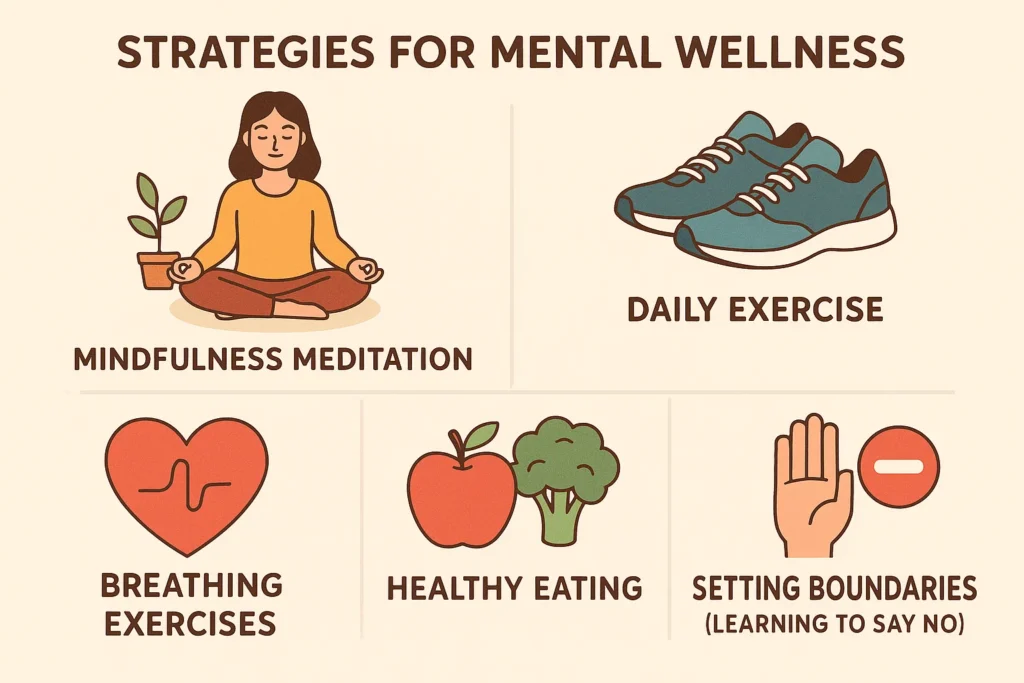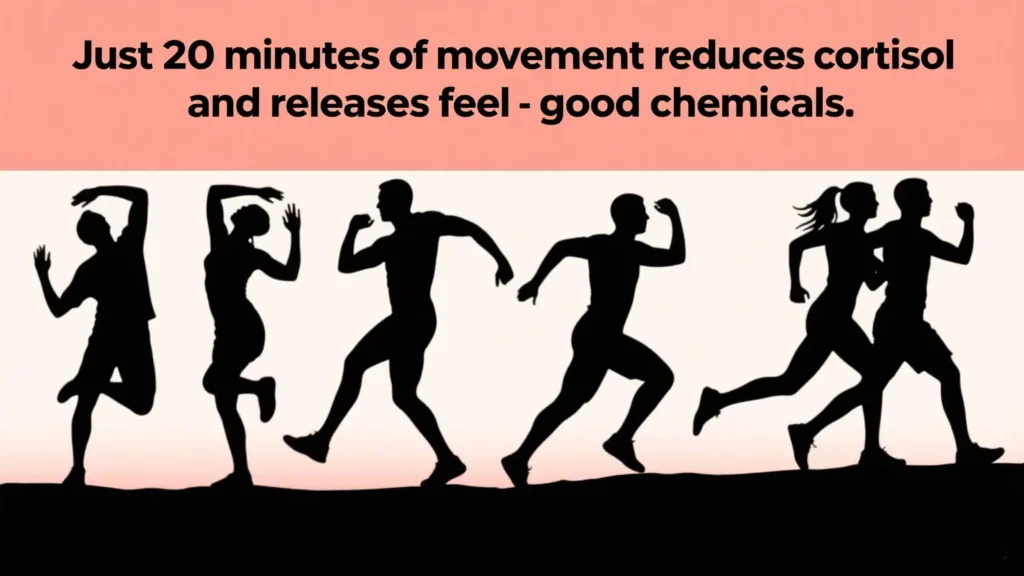In the modern world of today, it is becoming more and more common that people are also recognizing their emotional health, not only considering their physical health to be of great importance. Our daily life, pressures, and digital dependencies frequently make us feeling overwhelmed, drained, and disconnected. Self-care is a very popular word, but the fact is that real emotional wellness is much more than just an occasional bubble bath or a social media detox. It is all about certain habits and a mindset change that you gradually do and that will help you to be in control of your inner self by being diligent thus resulting in more energy and even a better life.
In this guide, we will look at the methods and the science of emotional wellness and effective stress reduction—from simple breathing exercises to profound changes in lifestyle that will be the steps towards the change of your life.

The Importance of Emotional Wellness and Its Growth
Emotional wellness is something that people have realized and the last 10 years have brought it to the surface of the holistic health discussions. An increasing number of people are experiencing burnout, anxiety, and mental exhaustion, which has triggered the need for emotional stability strategies.
Emotional wellness is the capacity to manage emotional feelings in a good and balanced way. This does not mean that happy emotions only are experienced. It involves a change in the mentality to deal effectively with the pressures of life, setbacks, and new experiences. These people usually have better relationships, more focus and a good immune system.
The most recent stressors that have appeared recently such as work burnout, screen fatigue, and the dire need to remain active have made the self-regulation of emotions of great relevance in our lives. Unlike clinical mental health disorders, which may require therapy or medication, emotional wellness is something everyone can and should cultivate daily.
What Is Stress—and Why It Affects More Than Just Your Mood
Stress is the reaction of your body to any demand or threat. If we sense danger—be it real or imagined—the body secretes hormones like adrenaline and cortisol. This is what we call the “fight or flight” response. The early humans were helped to survive physical dangers by this mechanism.
There are two types of stress:
- Acute stress: Short-term stress that can sometimes be helpful, like before a presentation or deadline.
- Chronic stress: Long-term stress that remains unresolved and becomes harmful to mental and physical health.
Current stressors can be of the following nature:
- Non-stop notifications and digital overloading
- Lack of financial stability
- Stressful work environment and no separation of work-life
- Unpleasant relationship situations
If not well managed, stress can aggravate heart disease, anxiety, insomnia, digestive problems, and even cognitive decline. Additionally, it might make your sense of joy less prominent, blur decision-making, and make normal life seem sadder than it really is but in a more subtle way.
Proven Strategies for Daily Emotional Wellness & Stress Reduction
Developing psychological well-being is not a matter of finding the perfect solution—it requires a method of small, predetermined steps that accumulate over time. Below you can find a list of proven methods to be adopted and carried out with your life every day:
1. Mindfulness & Meditation
When you practice mindfulness, it means that you are completely concentrated in the present moment. One of the programs for stress reduction, which is based on mindfulness (MBSR), can provide significant changes, for example, from the reduction of anxiety to the improvement of sleep.
Let’s begin with:
- 5 minutes of daily breath-focused meditation
- Body scan techniques
- Journaling your thoughts without judgment
Monitoring emotions through apps like Headspace and Calm helps to gradually increase mental strength. Several of these apps have the recorded vocal tracks of mindfulness meditation teachers to help beginners to develop mindfulness meditation practices.
2. Move Your Body, Shift Your Mind
Another way of relieving stress is through exercise. After a workout, your body releases endorphins, which are the chemicals in the brain that work as natural painkillers, and also trigger a positive feeling.
You do not absolutely need to have an extensive gym session, you can try:
- A 20-minute brisk walk
- Stretching or yoga
- Dancing to your favorite music
Regular exercise has been found to be related to the reduction of cortisol, which is the stress hormone, and the promotion of mood stability. These results were achieved through an eighteen-week study.
3. Breathe Like It Matters (Because It Does)
You can use your breath to send a peace signal to your nervous system like this.
A simple breathing exercise looks like this:
- Inhale for 4 seconds
- Hold for 4 seconds
- Exhale for 6 seconds
- Repeat for 2 minutes
This kind of a rectangular breathing exercise can activate your parasympathetic nervous system, thus switching off stress. And the good news is that it’s portable, a free tool you possess anytime.
4. Nourish Your Brain and Gut
Perhaps you are not aware of it, but it is a fact that your gut, rather than your brain, produces almost 90% of the happiness chemical, serotonin.

- Include fermented foods such as yogurt, kimchi, and sauerkraut in your list.
- Stay away from sugar and caffeine, particularly during the days when stress is high.
Drinking water and having regular meals can also keep blood sugar levels and emotions stable.
5. Set Boundaries and Say No
One of the most energy-draining activities is being an overcommitter. Save your emotional energy by:
- Blocking contacts after a specific hour (e.g. no emails after 7 PM)
- Avoiding social occasions that mixed feelings instead of making you happy
- Scheduling some time to rest and relax
How to Build an Emotional Wellness Routine That Works for You
Wellness routines, being different for everyone, should be created based on personal needs. Below are the steps you can follow to construct a wellness routine:
1. Assess Your Current Emotional State
Energy, stress, and emotional clarity can be rated using a daily check-in journal. You can identify plans by looking at the patterns in your energy, stress, and emotional clarity.
2. Anchor Practices to Daily Habits
- Right after brushing your teeth, meditate for a couple of minutes
- While waiting for the coffee to be ready, do some stretching
- Use your car ride to work to say affirmations
Habit-stacking is a surefire method that has been tested by scientists for keeping up with habits.
3. Make Use of Technology Wisely
Use your device as an aid to wellness rather than letting it suck out your energy:
- Set up reminders for the breathing exercises
- Insight Timer or Moodpath are some of the apps you can install on your phone
- List your moods to find out what causes you to feel dysregulated
4. Know When to Seek Help
If you are feeling constantly sad, anxious, or even have a sense of hopelessness, it is time to consult a professional licensed therapist. There is wisdom in being able to ask for help.
Advantages of Lasting Effects of Stress Management and Emotional Wellness Cultivation
Your emotional well-being and ability to cope with stress are not limited to immediate happiness, they outline your long-term health, relationships, and identity.
1. Better Decision-Making
Not overthinking helps you focus on your thoughts, react with carefulness, and remain calm even in the middle of the storm.
2. Enhanced Relationships
Emotionally stable individuals do a lot in terms of communication, empathy, and conflict resolution with more harmony and grace.
3. Stronger Immune System
Chronic stress decreases the capacity of body’s immunity. Health routines help your body build better resistance.
4. Improved Focus and Productivity
Stress weakens your brain’s cognitive effectiveness. Emotional wellness practices recover mental sharpness and motivation.
5. Greater Sense of Life Satisfaction
An emphasis on emotional wellness can definitely make living much more pleasant, as it is now that you can find pleasure in the small things, remain hopeful in the face of disappointments, and have a clear purpose for your life.

Final Thoughts: Emotional Wellness is a Lifestyle, Not a Luxury
Reducing stress is not a matter of a huge transformation in life. A small start is enough. Take deep breaths on purpose. Exercise. Write down your worries. Have a good breakfast. Switch off the phone for an hour.
Emotional health is not about never making mistakes. It is about caring for oneself every time. When you finally allocate as much or even more you do to your inner peace than to outer accomplishments, you are transforming yourself not only by reducing stress but also by redefining success.
So breathe in deeply. The first thing you have to do is to do this.